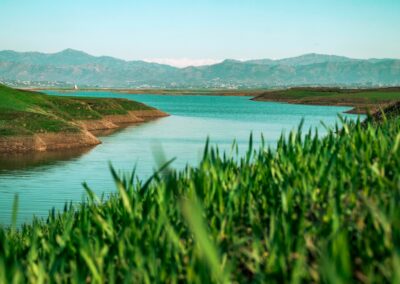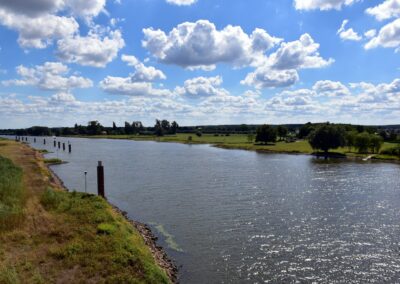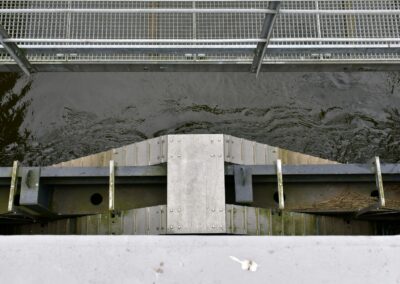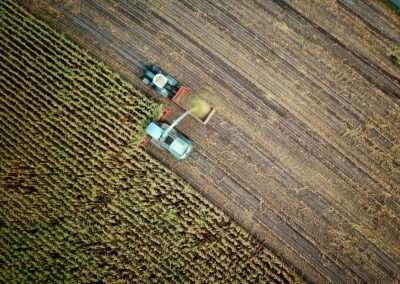The Role of Sustainable Water Management in Risk Mitigation
Harnessing Technology for Drought Mitigation
Sustainable water management practices are essential for mitigating water-related risks such as drought, particularly in arid regions like Saudi Arabia and the UAE. Cities like Riyadh and Dubai are adopting advanced technologies, including Artificial Intelligence (AI), the Internet of Things (IoT), and data analytics, to monitor and manage water resources more effectively. These technologies enable real-time data collection and analysis, providing crucial insights that help predict and respond to drought conditions.
AI-powered systems analyze data from various sources, including weather forecasts, soil moisture levels, and water consumption patterns, to predict drought conditions and recommend proactive measures. In Riyadh, for example, AI-driven models help city planners allocate water resources more efficiently during dry periods, ensuring that essential services and agricultural needs are met. Similarly, in Dubai, smart irrigation systems use IoT sensors to monitor soil moisture and weather conditions, optimizing water use and reducing waste.
Blockchain technology enhances transparency and accountability in water management by providing a secure and immutable record of water usage and distribution. This technology ensures that all stakeholders have access to accurate and up-to-date information, fostering trust and collaboration in managing water resources. By leveraging these advanced technologies, cities in Saudi Arabia and the UAE can develop resilient water management systems that mitigate the impact of drought and ensure a sustainable water supply.
Effective Flood Mitigation Strategies
In addition to drought mitigation, sustainable water management practices play a crucial role in mitigating the risks associated with flooding. Urban areas, particularly in rapidly growing cities like Riyadh and Dubai, are vulnerable to flooding due to their extensive infrastructure and impervious surfaces. Advanced technologies such as AI, IoT, and data analytics provide real-time monitoring and predictive capabilities that help city planners manage flood risks more effectively.
AI-driven flood prediction models analyze data from weather forecasts, river levels, and rainfall patterns to predict potential flooding events. These models enable city officials to implement timely and targeted interventions, such as opening floodgates or diverting water flow, to minimize damage. In Dubai, for instance, smart drainage systems equipped with IoT sensors monitor water levels in real-time, ensuring that drainage networks operate efficiently during heavy rainfall.
Effective communication and leadership skills are essential for managing flood risks and ensuring the safety of residents. Executive coaching services can help city leaders develop the skills needed to coordinate emergency responses and communicate effectively with the public during flood events. By fostering a culture of preparedness and resilience, city leaders can enhance their communities’ ability to withstand and recover from flooding.
Supporting Sustainable Urban Development
The implementation of sustainable water management practices is vital for supporting sustainable urban development in smart cities. As cities like Riyadh and Dubai continue to grow, the demand for water is increasing, putting pressure on existing resources and infrastructure. By optimizing water management practices, these cities can ensure that they meet the needs of their growing populations without depleting natural resources or harming the environment.
Generative AI and advanced data analytics can further enhance urban planning and development. These technologies enable city planners to create detailed simulations and models, predicting the impact of new developments on water resources and infrastructure. This proactive approach ensures that new projects are designed with sustainability in mind, minimizing their environmental footprint and contributing to the overall resilience of the city.
Moreover, the integration of sustainable water management practices aligns with the broader vision of sustainability outlined in initiatives like Saudi Vision 2030 and the UAE’s National Agenda. These strategic plans emphasize the importance of environmental stewardship and the role of technology in achieving sustainable development goals. By investing in sustainable water management practices, Saudi Arabia and the UAE are demonstrating their commitment to creating sustainable, livable cities for future generations.
In conclusion, sustainable water management practices are essential for mitigating water-related risks such as drought and flooding. By leveraging advanced technologies and data analytics, cities like Riyadh and Dubai can develop resilient water management systems that ensure a sustainable water supply and support sustainable urban development. As these cities continue to innovate and grow, the adoption of sustainable water management practices will be crucial for ensuring the sustainability and resilience of their urban environments.
#SustainableWaterManagement #WaterRelatedRisks #DroughtMitigation #FloodMitigation #AI #Blockchain #Dubai #Riyadh #UAE #SaudiArabia























